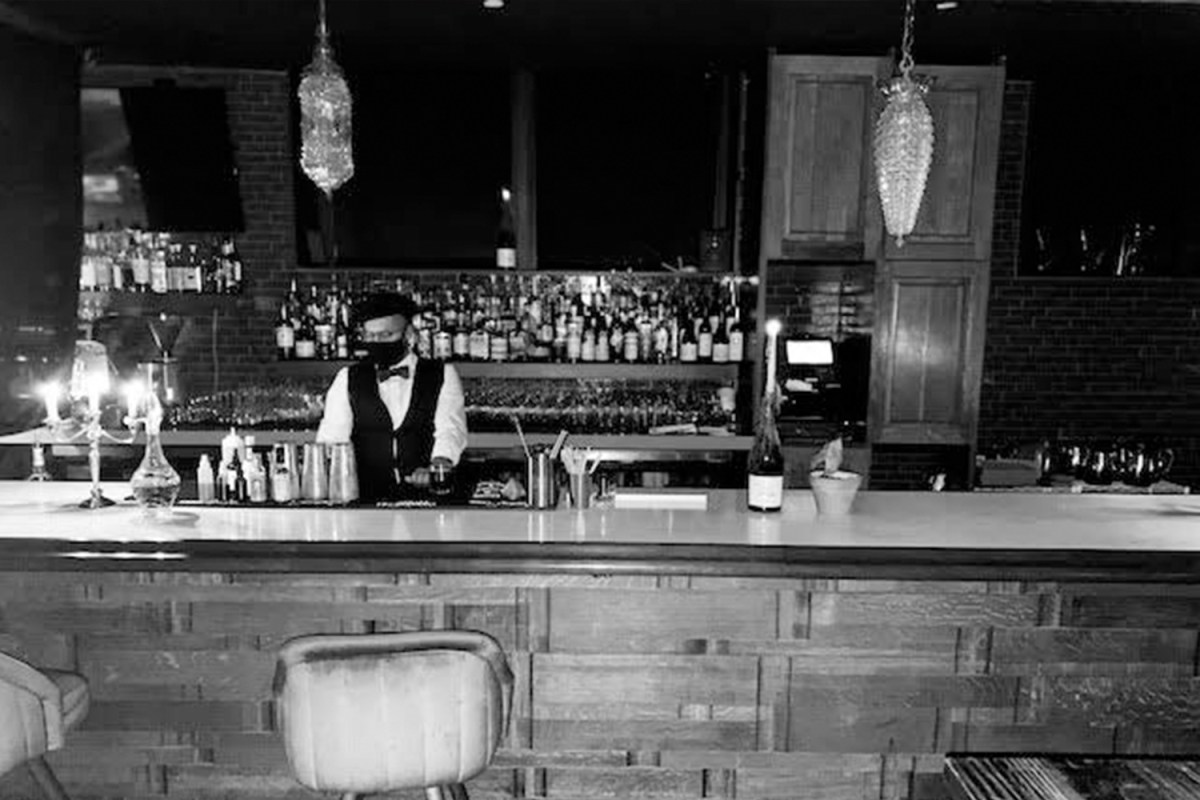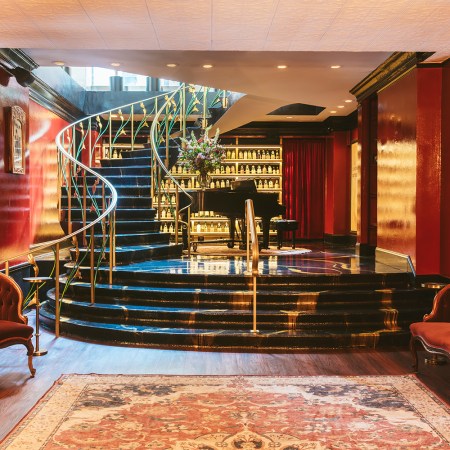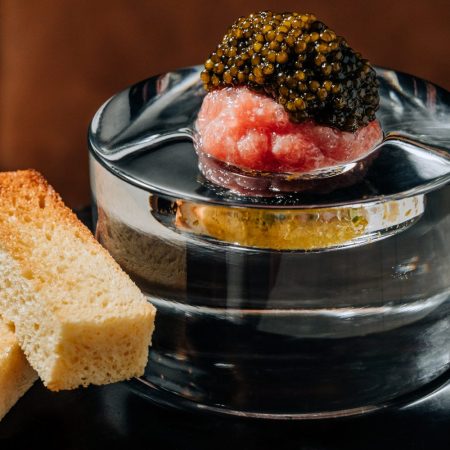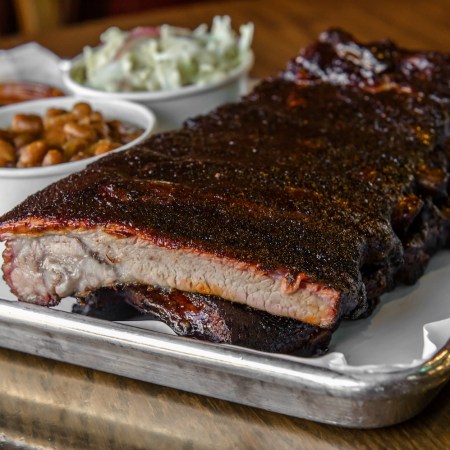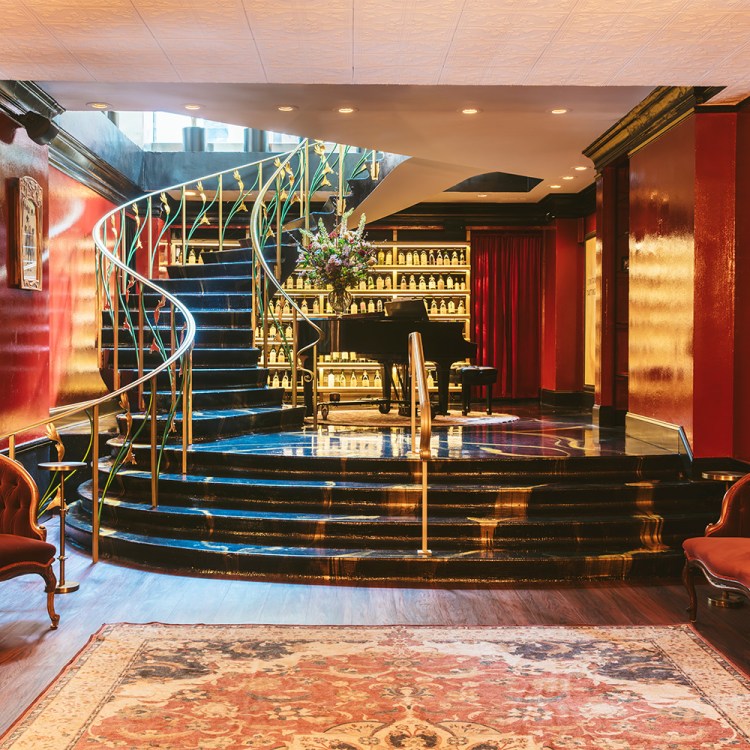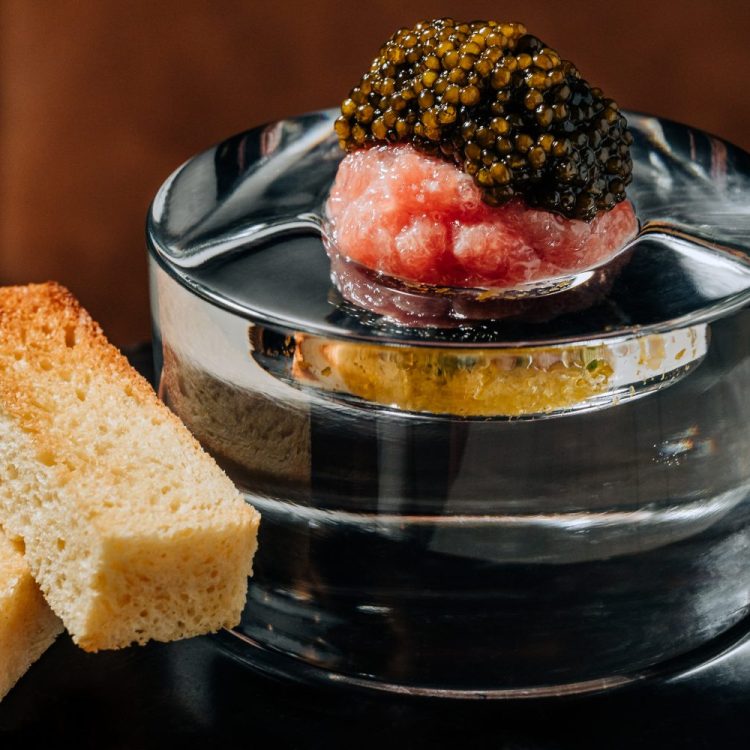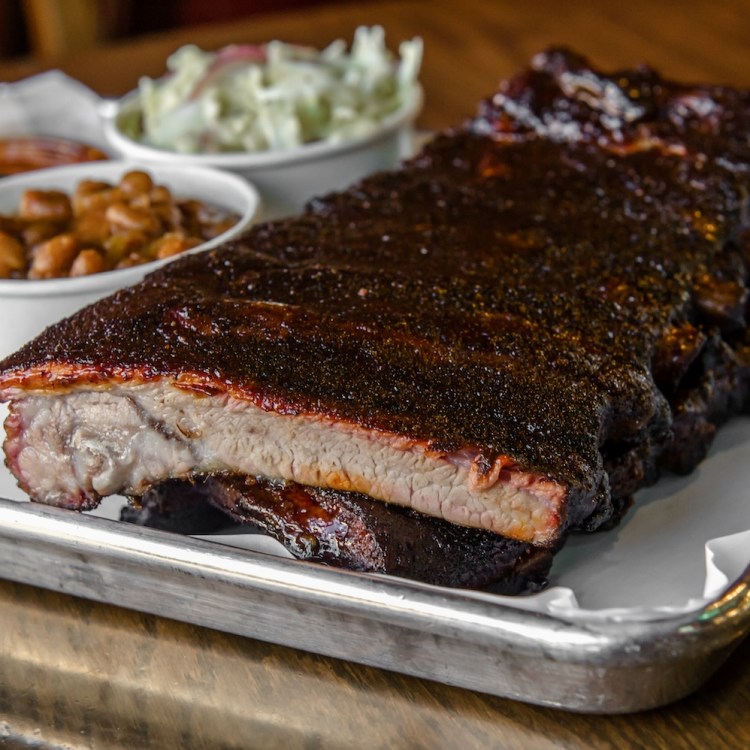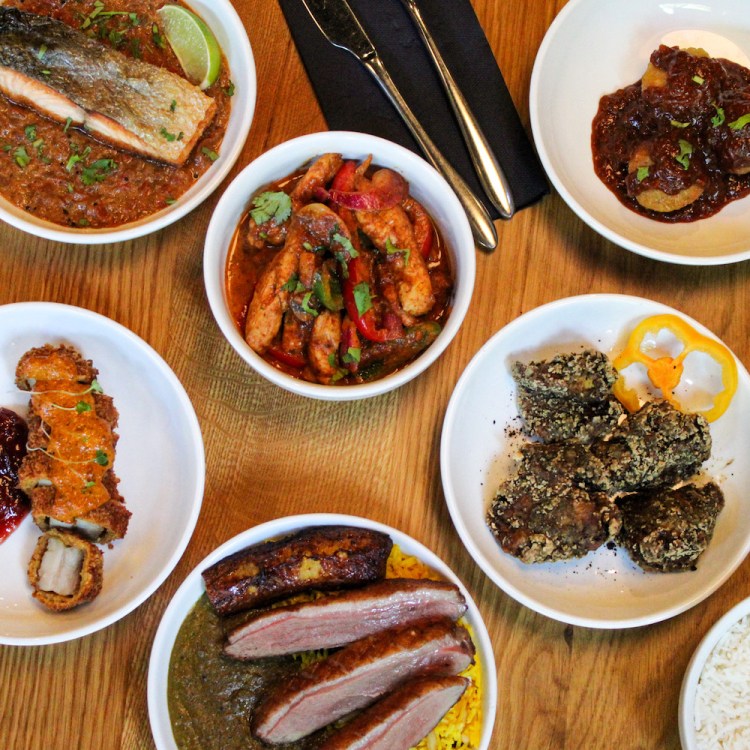The global pandemic has had an acutely devastating effect on America’s bar and restaurant industry. Countless neighborhood stalwarts have shuttered and endless projects put on hold, while tens of thousands of hospitality pros have been cast into the throes of unemployment. And even as local governments now begin easing dining restrictions, a swift return to “normal” seems highly unlikely, a reality that’s driving some businesses to risk it all on drastic — and, in the case of polished West Loop bistro The Press Room, even eyebrow-raising makeovers. Welcome Dead Plants, a welcome new pandemic-era speakeasy.
Like so many brick-and-mortar establishments facing strict lockdowns, The Press Room initially adopted a pop-up concept to stay afloat. The three-and-a-half week Christmas market was a hit, but when it inevitably came to an end, managing partners Petros Papatheofanis, Cristian Mendoza Jarquin, and the rest of the Press Room crew were back where they started — watching the snow pile up as they wait for indoor dining to resume with no clear idea of when it might happen or what it might look like.
“When we got shut down the second time — I think October or November — we found ourselves in a tough position,” says Papatheofanis, discussing the journey from upmarket wine bar to mini-Christkindlmarket to hush-hush drinking den, all within the span of a single season. “Cristian came up with the idea for Miracle on Washington Street and that worked out really well, but we realized that we weren’t out of the woods yet. What do we do next?”
“We weren’t expecting to reopen until the spring, and we knew that even then a lot of people won’t necessarily feel safe enough to come out,” he continues. “And people that do go out, they’re going to want something special because it’s not just the old normal of just going out to go out. They’re going to want an experience, especially now. We saw that transforming our space into a completely different identity worked for December, so maybe we can do something like that.”
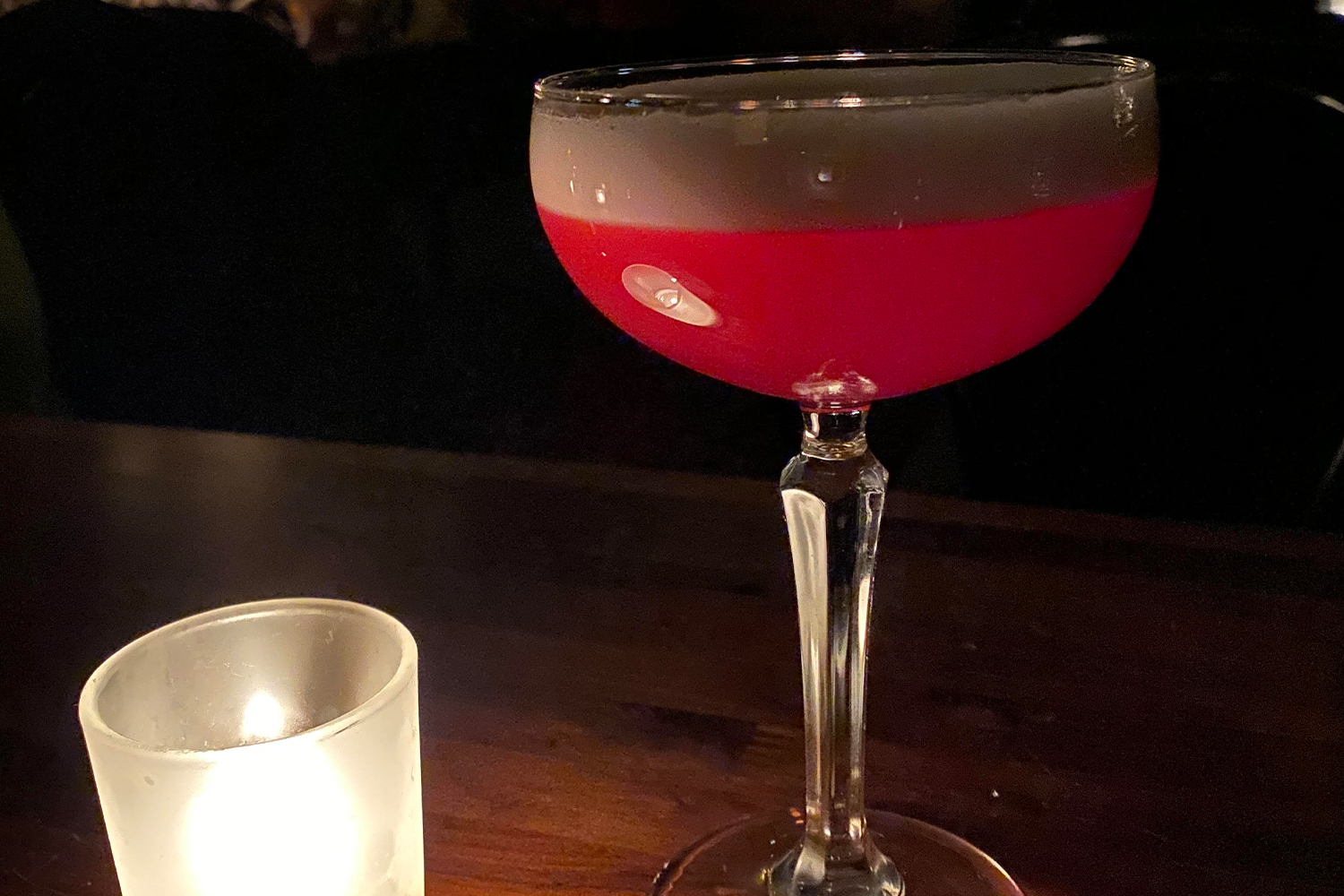
Looking around the Press Room, with its exposed brick and warm vintage touches — a crushed velvet banquette, tufted leather bistro chairs and antique wall mural — inspiration struck. Instead of simply spacing out tables, updating the ventilation system, ushering in small groups of guests and pretending as if nothing has changed, what if they leaned into the markedly tenuous moment by introducing into the city’s first official pandemic-born speakeasy?
“The bar is half-underground already — our windows are at street level — so we decided a speakeasy would kind of fit,” Papatheofanis recalls. “We blocked out the windows, changed up the interior, turned off the lights, lit the entire place up with candles, and were like, ‘You know what? Let’s do this. Let’s build an experience where you can forget about the outside world.’ It was born out of necessity, but also with the sense that we wanted to do something fun.”
The team landed on the name Dead Plants, an homage to the remnants of greenery discovered upon re-entering the Press Room’s boarded-up bar space, and began seating limited numbers of entertainment-starved diners via reservation in mid-February. And while the new spot is undoubtedly committed to properly enforcing CDC guidelines and other legally mandated safety protocols, the experiment cheekily draws upon the city’s notoriously lawless past.
Dubbed Prohibition’s worst-kept secret, illicit underground taverns proliferated throughout the country from the dawn of the dry era in early 1920 until well after 1933’s federal repeal. And few American cities laid claim to more of these boozy hideaways than Chicago, a town that became synonymous with organized crime and illegal trade thanks to enterprising mob bosses like Al Capone, Johnny Torrio, and the rest of the Untouchable lot, in tandem with a widely corrupt police force. Reports indicate that at its height, more than 3000 covert gin joints dotted the Chicagoland area, drawing thousands of revelers into the shadows with promises of bootleg liquor, scantily-clad dancers, and other bacchanalian temptations.
Part of the speakeasy’s thrill, of course, was inextricably tied to its inherent danger. Bar-goers were taking fate into their own hands at every turn, ducking into dark alleys in search of unmarked doors, filling their teacups with murky homemade swill, and fraternizing with powerful men who unabashedly dealt in violence, all the while knowing a surprise raid could turn their lives akimbo. Given today’s climate, one can’t help but draw a parallel between the tommy guns and moonshine of the 1920s and our current upheaval a full century later: Whether you personally condone indoor dining or not, the Press Room’s pivot appears to be a timely one.
“I think that’s part of the reason why it’s working so well,” says Mendoza Jarquin. “As an industry, we’ve been teetering on legal versus not legal, based on what the government says, for so long. There is this taboo about going out to restaurants right now and bringing it back to the real speakeasies, where drinking actually was illegal, adds an element of mystique. You’re completely transported when you walk in, and people are really enjoying that.”
Playing on cultural taboos is one thing, but when it comes to health risks, Papatheofanis and Mendoza Jarquin take a reassuringly serious approach. They maintain a tiny onsite staff of just four, including themselves, and continue to offer take-away food and drink for customers uninterested in stepping over the threshold. They’re operating at 25% capacity with tables spaced six feet apart, the hand sanitizer flows like batched Manhattans, masks are a must, and reservations span strict two-hour time slots.
Speaking of Manhattans, a slate of period-appropriate cocktails like Vieux Carres and French 75s are on offer, complemented by a full dinner menu. A roster of ticketed live music performances, each 90-minute show capped at just 26 attendees, acts as the escapist cherry on the top of this Roaring ’20s immersion.
“People have been cooped up in their houses, they’re working from home, constantly on their cell phones, their laptops, in meetings, whatever it is,” notes Papatheofanis. “Everyone needs that little refresh, that little pause on technology, to just get lost for a couple hours, listen to some old school music, have a couple of great cocktails, eat a little food, and really enjoy it while still being safe and socially distant. People are coming up to us saying, ‘Man, I needed that.’ That’s what we’re trying to provide.”
This article was featured in the InsideHook Chicago newsletter. Sign up now for more from the Windy City.
